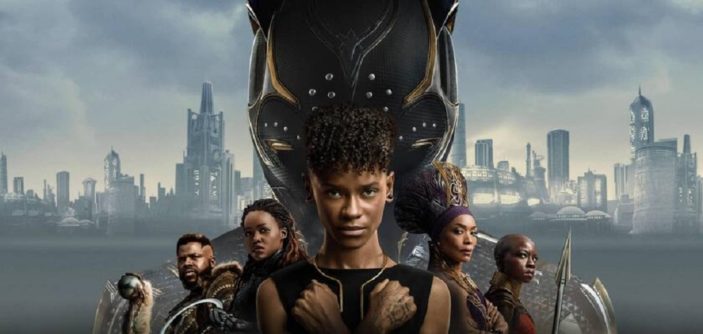
Phase Four of the Marvel Cinematic Universe has undoubtedly divided fans like no other that has preceded it. Whilst there was a certain uniqueness in how characters and narratives were handled – say what you will about Eternals or Thor: Love and Thunder, but they at least attempted to separate themselves from the norm – their overall construction led to one of the safest, most beloved properties being wholly dissected and, arguably, stripped off a love for them that felt universal.
This phase is now coming to a close, and doing so with an entry that has suffered the most. After director Ryan Coogler spearheaded 2018’s Black Panther to a critical and commercial acclaim that was even beyond the usual behemoth box office numbers that these films seem predetermined to achieve – not to mention earning the MCU its first Best Picture nomination at the Academy Awards – his return in Black Panther: Wakanda Forever is shrouded in the tragic passing of original star Chadwick Boseman.
The loss of such an integral player and a promising talent is something Wakanda Forever can’t avoid, nor should it have even tried to, and Coogler and co-writer Joe Robert Cole (Black Panther, All Day and a Night) layer the film with an understandable emotional edge, honouring both the character and the actor in the process; the opening Marvel logo here is adorned entirely with footage of Boseman, something that was met with a resounding, respectful silence from the viewing crowd.
It’s even more impressive that Coogler and Cole have constructed such a narrative here, given that Boseman’s passing occurred when the original script had been delivered, tweaking the trajectory of Wakanda Forever and creating a story that enhanced the familial element that held together so much of the first film; Letitia Wright‘s Shuri, the younger sister to Boseman’s T’Challa, emerging as a much greater force here.
The story itself initially centres itself around the nation of Wakanda and their mourning in the wake of King T’Challa’s passing. Queen Ramonda (Angela Bassett, stirring) leads with an iron fist and a heavy heart, trying to keep her head above water as her country fights off threats, both on the ground and under the surface; U.S. forces are hoping to obtain vibranium, whilst an aquatic nation known as Talokan, led by Namor (Tenoch Huerta), rise from the oceanic depths in scenes of parallel warfare that heighten Wakanda’s fears of safety in an environment void of Black Panther.
As is the case with many a Marvel film, the less detailed about the story, the more enjoyable for the fans at hand. And though Wakanda Forever still treads similar water in terms of emotionally-driven hero versus misunderstood villain – as with the first film in Michael B. Jordan‘s complex Killmonger, Huerta’s Namor is a more shades-of-grey coloured antagonist – it’s the themes of loss and identity that keep the story from feeling familiar.
Much like the first film, too, it’s the ensemble that continually elevate Coogler’s already powerful material. Wright, whose charm and humour shone through in the first film, easily takes over the mantle as the likeliest successor to the Black Panther name as a more determined, mature Shuri, whilst Bassett, who feels as if she has an Oscar clip ready in every scene she dominates, grounds the film with an emotionality that reminds us the calibre of talent MCU films often hone. And just as they earned the SAG Ensemble during the awards run for the original film, cast members Lupita Nyong’o, Winston Duke, and, particularly, Danai Gurira make each moment their own, operating between what they know they should do for their country, but what they want to do for its people.
And whilst the CGI reliance will continue to irk viewers – at least here not every backdrop is an obvious green screen – and the appearance of the Talokanian people will bring immediate comparisons to the Pandorans from James Cameron’s Avatar, the excitement brought forth from Wakanda Forever is what will ultimately dominate. There’s both a comfort and a welcome surprise in knowing that after so many films and streaming shows (especially with this latest phase) the MCU still know how to tell a story first and serve as a spectacle second.
![]()
![]()
![]()
![]()
![]()
FOUR STARS (OUT OF FIVE)
Black Panther: Wakanda Forever is screening in Australian cinemas from November 10th, 2022.
